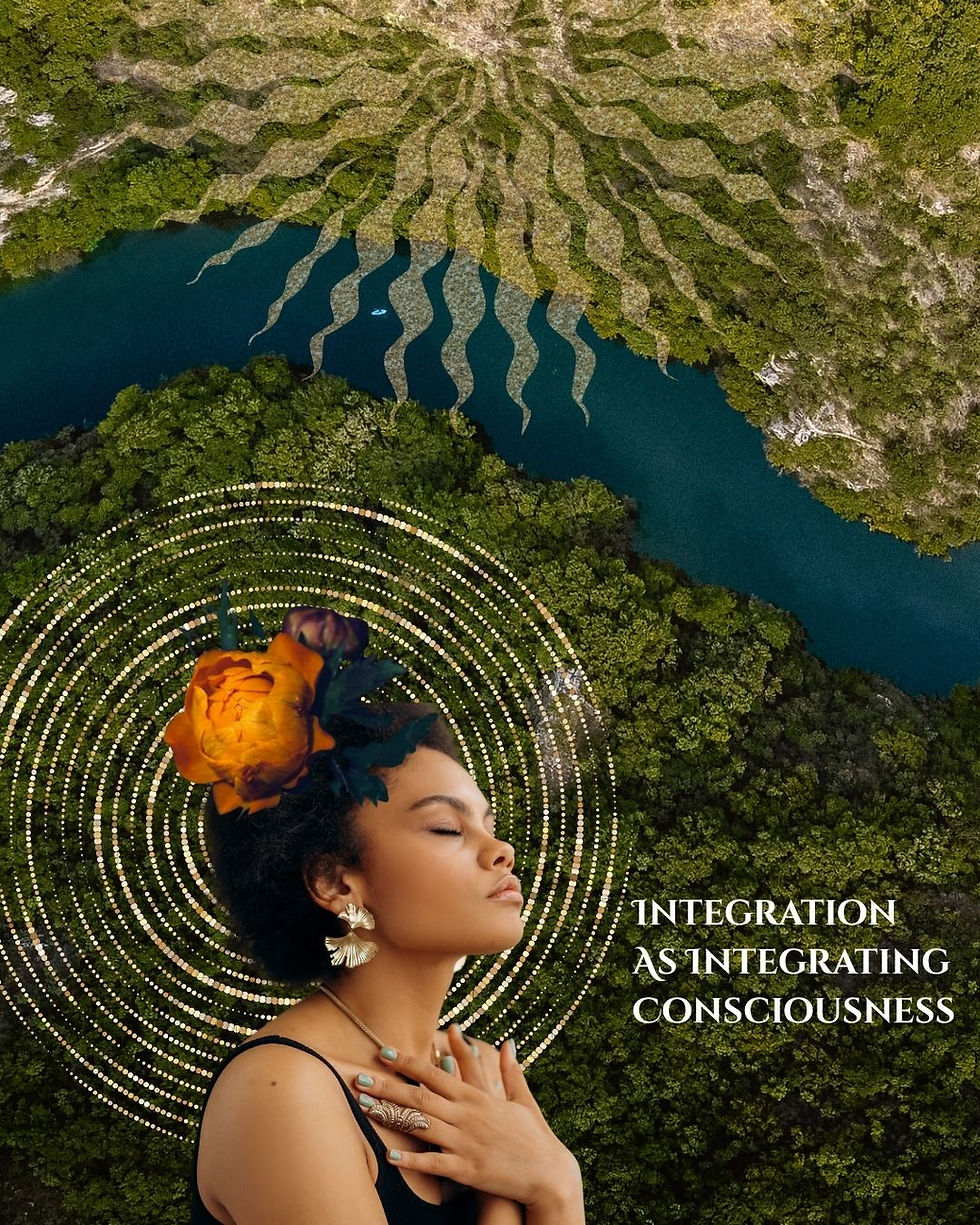Decolonizing the Mind with Feelings-Based Intentions for a Psychedelic Ceremony.
- Alexa

- Jul 10, 2024
- 4 min read
By Alexa Iya Soro

As a psychedelic therapist specializing in somatic Internal Family Systems, I have had the privilege of guiding numerous individuals on their psychedelic plant medicine journeys. My approach draws heavily from expressive arts therapy, teachings from indigenous elders, and my professional therapy background. Through this experience, I have discovered the significant power of feelings-based intentions in personal healing and as a means to decolonize the mind. These intentions not only promote personal well-being but also foster a compassionate and interconnected way of living as part of the greater web of life on Earth.
Traditionally, intentions were community-based and reflected the collective felt experience. However, as westerners, many of us have grown up in individualistic cultures, detached from the tribe. While we may not be part of a tribe, we can still apply tribal collective values to our own experiences. One way to do this is by setting feelings-based intentions rather than relying solely on words. This subtle shift in perspective can have a profound impact on personal growth and collective healing, benefiting not only humans but also the Earth.
Decolonizing the Mind through Feelings-Based Psychedelic Intentions
In addition to promoting personal healing, feelings-based intentions offer a pathway to decolonize the mind. The current cultural paradigm often prioritizes cognitive, words-based approaches, reinforcing hierarchical, performance-driven, and profit-oriented structures. This mindset stems from colonization and places productivity above well-being, leading to burnout and disconnection from nature. By stepping outside the language-based lens and embracing direct experience, we can truly appreciate the consciousness-shifting properties of plant medicines and nature as a whole.
Shifting from Performance to Presence
Feelings-based intentions encourage a shift from performance-oriented goals to a presence-based experience. This shift embodies a more feminine, receptive approach, emphasizing intuition, connection, and appreciation of the present moment. It moves away from the constant drive for scalable performance and towards recognizing the intrinsic value of the experience itself.
Moreover, practicing presence allows us to stimulate serotonin pathways and deactivate chronic dopamine fluctuations, which can result in a lack of motivation, chronic stimulation, stress, and pressure for performance. Relying solely on dopamine can hinder our sense of connection to ourselves and our loved ones. By embracing feelings-based intentions, we can establish a healthier balance and foster authentic connections.
Protecting Plant Medicine
Embracing a feelings-based approach also honors the sacredness of plant medicines and resists commodifying them into a business-driven model. This perspective promotes sustainable use and conservation efforts, ensuring that these powerful tools remain available for future generations and are respected for their spiritual and healing properties.
Encouraging Connection with the Earth
Feelings-based intentions foster a deeper connection with the earth and the natural world. This connection is vital for promoting conservation efforts and understanding our role within the larger ecosystem. By grounding ourselves in our felt sense, we become more attuned to the rhythms and needs of the planet, cultivating a sense of stewardship and responsibility.
Feminine Consciousness Rising
The rise of feminine consciousness is crucial in this context. Our culture has long been dominated by masculine, yang-oriented values such as assertiveness, control, and relentless productivity. These values have often neglected the well-being of individuals and the planet. In contrast, feminine consciousness emphasizes care, empathy, and connection. It values the process over the outcome and the journey over the destination.
Plant medicine ceremonies naturally align with this feminine, yin-like energy. They invite us to slow down, listen deeply, and connect with our inner selves and the world around us. They remind us that true healing and transformation come from within, not from external achievements or validation.
As Joanna Macy eloquently states in her book "World as Lover, World as Self," "The heart that breaks open can contain the whole universe." This breaking open, this deep feeling and connection, is where true healing begins.
Cultures of Care and Matriarchy
Embracing feelings-based intentions also moves us towards creating cultures of care. These are cultures that prioritize the well-being of all members, nurturing and supporting individual growth and healing. This approach resonates with matriarchal societies, where communities are built around mutual support, respect, and care for one another and the environment.
A Desire for Connection
At the core of plant medicine work lies a profound desire for connection. People turn to these ceremonies to reconnect with themselves, others, and the earth. They seek to remember their place in the web of life, to heal the wounds of disconnection and separation. Plant medicines are not the answer themselves; rather, they serve as vehicles that help us remember our humanity and interconnectedness.
As the I Ching wisely advises, "When people live in harmony with the Tao, they will prosper, but if they deviate from it, they will be ruined." Plant medicines guide us back to this harmony, helping us live in alignment with the natural order of life.
A Call to Action
As a psychedelic therapist, my mission is to guide individuals on this transformative journey, helping them set and realize feelings-based intentions that honor their authentic selves and their connection to the world. I invite you to join me in this work. Together, we can decolonize our minds, embrace feminine consciousness, and foster a more compassionate, interconnected world. If you are ready to embark on this journey, I am here to support you every step of the way. Let's work together to create a more humane, sustainable, and loving world.




Comments